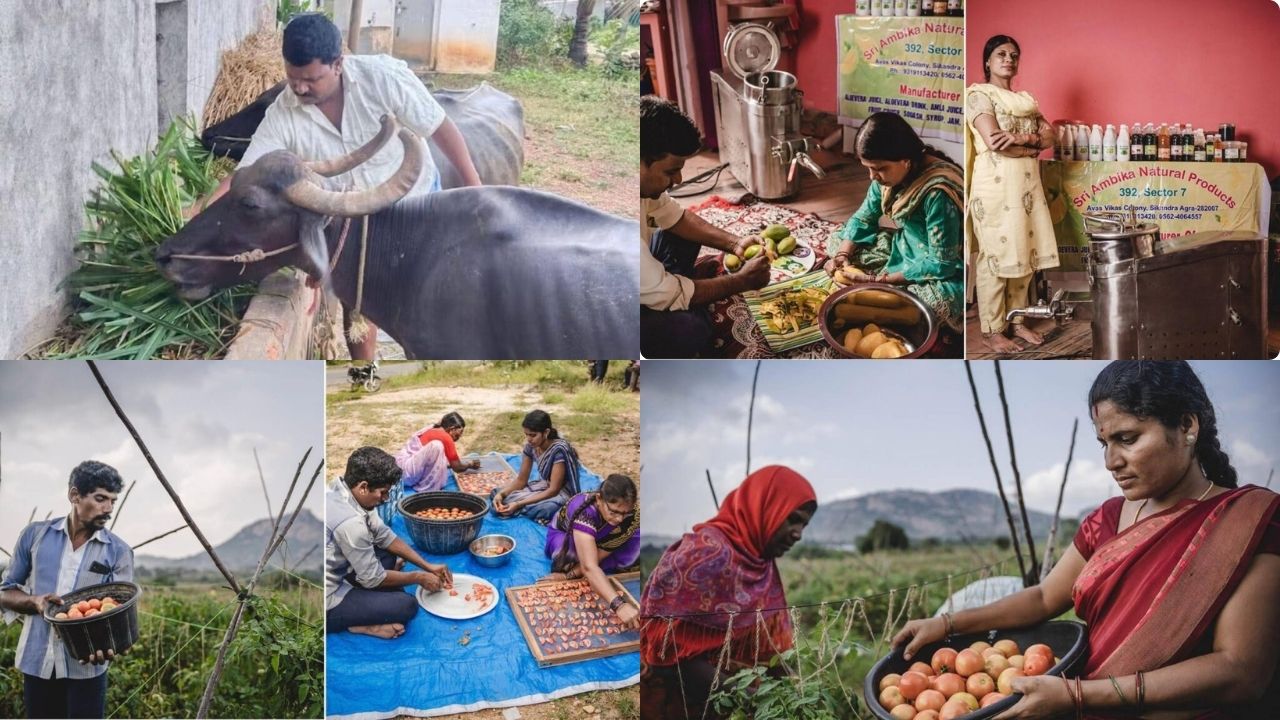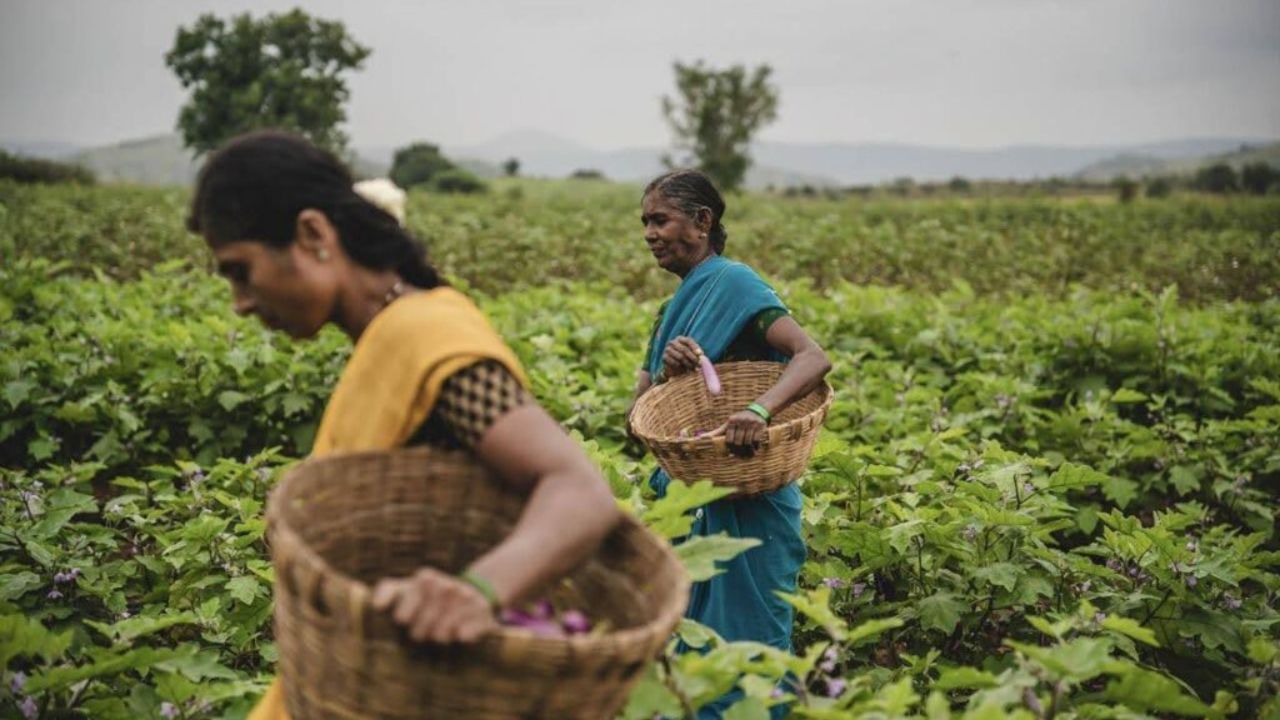As India charts its course toward becoming a $5 trillion economy, it’s time to ask a crucial question: Are our farmers on the same journey of progress?
Despite agriculture contributing nearly 18% to India’s GDP, most farmers continue to face a harsh economic reality. The majority still operate without mechanisation. Climate change, erratic rainfall, soil degradation, pest outbreaks, and skyrocketing input costs have turned cultivation into a gamble rather than a dependable livelihood. Meanwhile, 75% of Indian districts are now considered highly vulnerable to climate disruptions.
But the challenges don’t end at the farm gate. A less visible crisis unfolds after harvest—post-harvest food loss. High-value crops like fruits and vegetables often never make it to market in usable condition due to the absence of cold chains or local processing units. Without infrastructure, perishables rot. Prices crash. Farmers lose. The economy and environment both pay a heavy price.

A New Chapter: Farmers as Food Entrepreneurs
Yet amid this adversity, there’s a powerful shift taking place. Across India, farmers are no longer just producers—they are evolving into entrepreneurs, innovators, and food processors. It’s a quiet revolution that’s reshaping rural India from the ground up.
Take Dharambir Kissan, a farmer from Haryana. After experiencing consistent post-harvest losses, he invented a low-cost, multipurpose food processing unit. With it, farmers can now convert surplus produce like mangoes, amla, and guava into juice, pulp, or candy—preserving crops, reducing waste, and adding value to their harvest.
Or look at Raheja Solar Food Processing, an initiative supporting farmer-producer organisations (FPOs), self-help groups, and NGOs. Their solar-powered processing technology helps rural communities—especially women—transform excess crops into marketable goods. They also connect these products with buyers, creating reliable income streams and climate-resilient livelihoods.
These are not one-off success stories. They’re signals of a broader transformation—but one that’s not without its hurdles.
Breaking Barriers: What’s Holding Farmers Back?
Most smallholder farmers face a lack of access to finance, infrastructure, and markets. Traditional banks remain hesitant to lend to rural food ventures, often citing the lack of formal business plans or collateral. Sustainable tech—like DD Solar’s solar-powered cooling units—already exists, but uptake remains slow. Farmers can’t afford high upfront costs, and lenders fear repayment risks.
Market access is equally challenging. Even if farmers do process their crops, they often lack the connections to sell at scale. Many are left out of formal supply chains, digital platforms, or export networks because they lack packaging, quality certifications, and logistical support.
So how do we close these critical gaps?
The Villgro Approach: Powering Livelihoods, Financing Innovation
At Villgro, we work to dismantle systemic barriers that limit rural economic potential. Our focus is on empowering agri and rural enterprises through capital, capacity, and connections tailored to the unique realities of underserved regions.
Through the Powering Livelihoods program with CEEW, we’re backing last-mile entrepreneurs—especially women—with solar-powered dryers, processors, and coolers. With financial support and access to new markets, these entrepreneurs are proving that climate-resilient tech can work, even in the most remote corners.
We’re also making capital smarter. In partnership with SBI Foundation under the Innovators for Bharat program, we support startups offering agri-tech innovations tailored to India’s climate and rural contexts. Our financing models are synced with crop cycles and working capital needs—because real impact demands relevance.
To tackle affordability head-on, we’ve piloted peer-to-peer lending with Rang De, offering loans directly to farmers. Take Umesh, for instance—he raised ₹25,000 in under 24 hours to purchase a hydroponic fodder unit by Hydrogreens. This kind of financing helps unlock life-changing technology that was once out of reach.
The Road Ahead: Farmers as Future-Makers
If we’re serious about rural resilience and inclusive growth, we must move beyond seeing farmers as mere cultivators. They are entrepreneurs, processors, and problem-solvers—poised to lead India’s rural transformation.
With the right support—affordable finance, innovative tools, access to markets—farmers can do more than survive. They can thrive, building a new rural economy that’s climate-smart, technology-driven, and future-ready.
India’s agricultural future doesn’t lie in just growing more. It lies in growing better—and in adding value at every step. The next wave of prosperity could very well be powered by those who till the land—and now, by those who process its fruits.
Source : Indiaspora


